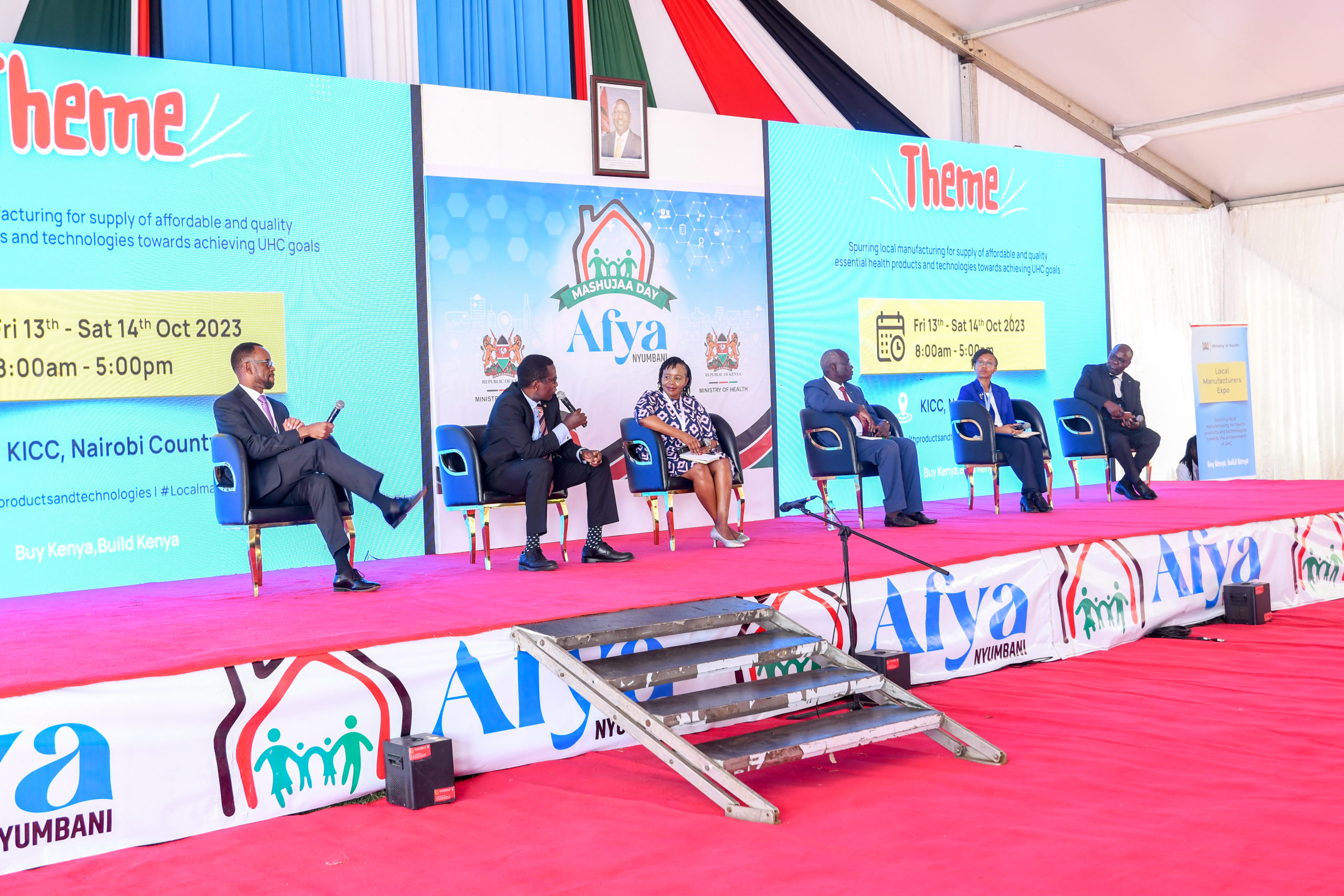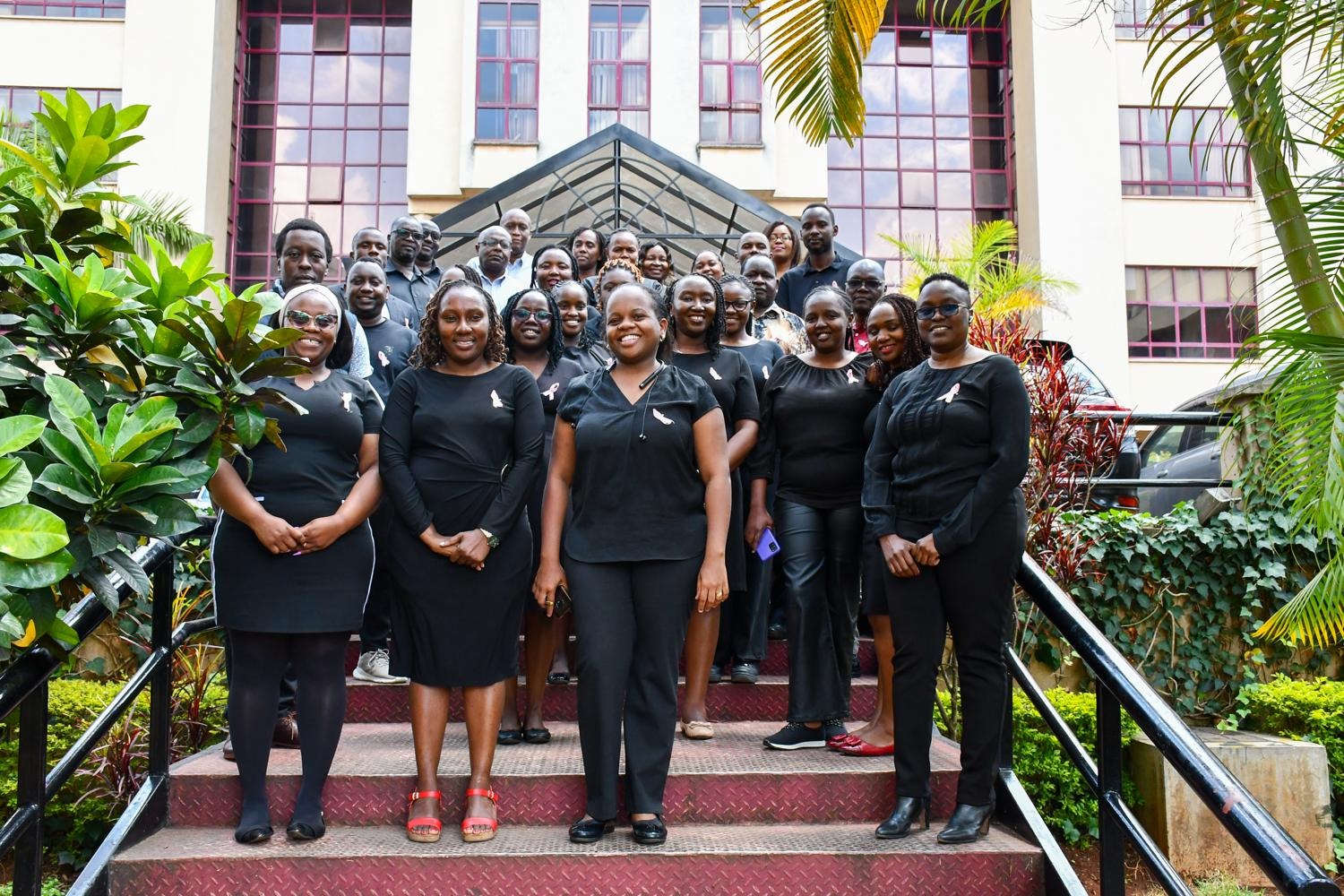The USAID Private Sector Engagement Program, PS Kenya, supported the Local Manufacturing Exhibition organised by the Directorate of Health Products and Technologies (DHPT) under the Ministry of Health (MOH) that took place on the 13th and 14th of October 2023 at the Kenyatta International Convention Centre, COMESA grounds in Nairobi County. The overarching aim of this two-day event was to catalyse four key objectives: to bolster confidence in locally manufactured health products and technologies, underscore their pivotal role in achieving Universal Health Coverage (UHC), stimulate solutions for revamping local manufacturing in this sector, and showcase the government’s commitment to advancing the universal health coverage agenda through domestically produced health products and technologies, all under the resounding theme of ‘Spurring local manufacturing for supply of affordable and quality essential health products and technologies towards achieving UHC goals.

The exhibition attracted a diverse range of dignitaries, including the President of Kenya, His Excellency, Dr. William Ruto; the Cabinet Secretary of the Ministry of Health, Susan Nakhumicha; the Principal Secretary of the State Department for Medical Services, Mr. Harry Kimtai, CBS and the Governor of Nairobi, the Honourable Johnson Sakaja. The event also brought together industry stakeholders, service providers, traders, and consumers.
The Kenyan government is taking significant strides towards achieving its goal of UHC by prioritising the local manufacturing of health products and technologies (HPT). This initiative is not just about creating products but about ensuring that these products are accessible, affordable, and readily available to all Kenyan citizens. By fostering local manufacturing, the government aims to reduce dependency on imports and promote self-sufficiency in producing essential health products.
“Kenya’s trade balance tilts heavily towards imports over exports, with our products primarily finding limited markets in the East African Community and the COMESA area. To bridge this gap, we must harness the potential of local manufacturing,” stated Dr. Tom Menge, Head of Health Products and Technologies, Ministry of Health.
This strategy not only strengthens the country’s healthcare system but also stimulates economic growth by creating jobs and supporting local industries. Through this concerted effort, Kenya is moving closer to its UHC objective, ensuring that quality health products are within reach for all, regardless of their socio-economic status.
“This is the beginning of a paradigm shift in the healthcare of this country. Many Kenyans are either unaware of or sceptical of our locally manufactured healthcare products. The President has entrusted me with the mission to guarantee that every healthcare facility has access to the necessary commodities. To realise this vision, we are determined to harness the power of local manufacturing,” stated Susan Nakhumicha, Cabinet Secretary, Ministry of Health.
The Cabinet Secretary emphasised three significant advantages that local manufacturing would bring to the nation. Stating that the approach promises to streamline production and distribution timelines, it offers the potential to substantially reduce the costs associated with importing these goods, as well as the price markups introduced by intermediaries along the supply chain.
“Kenya is currently the largest producer of pharmaceutical products in the common markets, and the Southern Africa region, COMESA, supplies almost 50% of the region’s market. I am optimistic that collaboration between the government, local manufacturers, and the private and public sectors will lead to Kenya expanding its market share in Africa by capitalising on the opportunities that lie ahead,” stated His Excellency, President William Ruto.
The USAID Private Sector Engagement Program is a five-year (2023–2028) mechanism funded by USAID with the goal of improving health outcomes through increased patient choice of health products and services in the private sector. The project has a bold vision of transforming Kenyan health markets through country-led and country-owned partnerships, including with the private sector and manufacturers. The USAID PSE Program will be delivered through a series of market-driven approaches underpinned by Collaborating, Learning, and Adapting (CLA), championing equity, and optimising resources. This synergy between the USAID PSE Program and Kenya’s local manufacturing endeavours is a promising stride towards making healthcare accessible and affordable for all, ultimately contributing to the realisation of UHC.
The collaborative approach witnessed at the exhibition underscores the potential to bridge gaps, increase confidence in locally manufactured health products, and ultimately fulfil the promise of quality healthcare for all Kenyan citizens.



